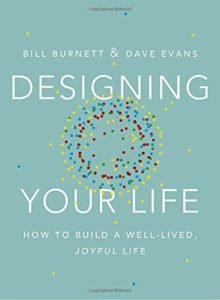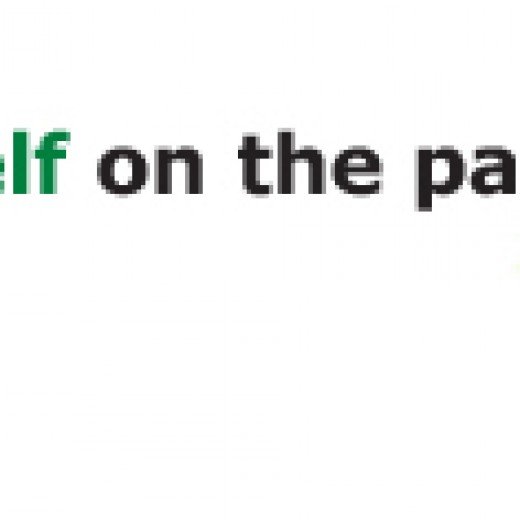Are You Out Of Focus? by Carol Malone
 Please welcome author and book coach in training Carol Malone. Today she’s sharing her article about maintaining our focus as writers with so many distractions. Enjoy!
Please welcome author and book coach in training Carol Malone. Today she’s sharing her article about maintaining our focus as writers with so many distractions. Enjoy!
***
If you’ve read any of my posts to date, I’ve been writing them for several years now, you’ll recognize that I only write about principles of writing or situations at which I suck. Staying focused is one I suck at big time.
I was cleaning off all my emails the other day when I was suddenly struck with the number of emails I receive from my favorite writing gurus and educators. I subscribed to a variety of them and the glut of email messages they send me on any given day is overwhelming. All of them appear urgent and require immediate response and of course, an investment. Some folks stress that I should do this and be a better writer, or I should do that and be a better writer. By the time I finished deleting 99.9% of those emails, I suffered from a minor panic attack. I was right sure everything I was doing in my writing was totally wrong, immature, or unfocused.
Unfocused. I was unfocused. Yikes!
 I’ve had other people tell me both my writing, and my life is unfocused. I wasn’t sure I know what that meant. I don’t like setting goals, but somehow I eventually received everything I wanted. Beth recently taught a webinar about Designing Your Life from the book by the same name written by Bill Burnett and Dave Evans.
I’ve had other people tell me both my writing, and my life is unfocused. I wasn’t sure I know what that meant. I don’t like setting goals, but somehow I eventually received everything I wanted. Beth recently taught a webinar about Designing Your Life from the book by the same name written by Bill Burnett and Dave Evans.
Burnette and Evans said of passion: “We are serious about this: you don’t need to know your passion in order to design a life your love.”
Beth Barany summarized: “There are parts of a writer’s life that are not filled with passion. Sometimes, it’s even the writing itself. We can lose our light, our passion, and then it becomes drudgery. Then we allow ourselves to lose our focus.”
If we wait for passion to overtake us before we move forward, we will remain stuck.
How do we get unstuck, focus in on what we want?
As many of you may know, I love to research and read from those who have gone on before me and have learned a thing or two. Since they have great suggestions, I thought I’d quote from them. The first article is titled: “9 ways to improve focus for writers.” I found their steps for improving focus helpful and quote them below:
- Start with a freewriting session
In her book The Artist’s Way, Julia Cameron instructs writers to do three pages of freewriting each morning on waking. One of the ideas behind this is that you will dump out a lot of the thoughts, emotions and negativity that may be blocking you. Along the same lines, you might find it helpful to begin a writing session with five to fifteen minutes of http://www.nownovel.com/blog/ways-to-improve-focus-for-writers/eewriting. Whether your potential distractions are connected to your personal relationships, your job, or the writing itself, giving yourself a short session to ruminate on it all helps.
- Limit your time
“If you find yourself losing focus over two hours, what happens if you cut back to ninety minutes or just an hour?”
I have found through my experience I wrote more when I worked full-time and went to school part-time. I had to concentrate my efforts in the short time I had to write – but I was super productive. Weird, right? Now, when writing is my full-time job, I find myself procrastinating, surfing the web, losing myself in social media, or paying bills instead of writing. So I’ve tried shorter time periods of say, an hour here, or two-hours and then take a break.
Writing in chunks is another suggestion from the book, The Chunky Method by Allie Pleiter. Allie said, “Give yourself the focus of a list, sharpen that focus by ordering that list according to your natural tendencies, and you will take great steps toward productivity.”
- Physical activity
“The famous Japanese writer Haruki Murakami is also a dedicated runner, and according to Murakami, the endurance and focus required for running is reflected in his writing and vice versa. Exercise is also linked to sleeping better, and getting enough sleep is essential for maintaining focus.”
- Plan ahead
Many writers do a lot of the mental work outside of the regular writing session. While making dinner, driving to work or waiting in line, they ponder character motivation, plot twists and structure. Combine this kind of planning ahead with the time limitation suggested above to see if a more rigorous approach helps your focus.
- Remove distractions
How many times have you sat down to write and found yourself in the kitchen doing dishes or engaged in some other distraction? One of the best ways to improve focus for writers is simply to remove distractions. It may be easier to simply go somewhere else, such as a library or coffee shop. However, if there is a space in your home where you can isolate yourself from other distractions, this may work as well.
- Avoid extra distractions on the internet
The internet has been both a boon and a curse for writers. It can connect you with other writers and resources and can make research far more efficient. But if cat videos and internet memes are your favourite entertainment, it can suck all the free time out of your day before you realise it.
- Try the Pomodoro technique (similar to The Chunky Method)
The Pomodoro technique is a popular and adaptable approach to productivity. In its original form, it breaks tasks down into 25-minute periods with a rest period of 3-5 minutes and a longer break after every four so-called Pomodoros.
- Get the soundtrack you need to write
Do you write best with the low murmur of a coffee shop around you, with music or with absolute silence? What you are hearing or not hearing can be the key to keeping you focused. If you prefer absolute silence, look into noise-cancelling headphones. Coffitivity is one such app for writers.
- Take a meditative approach
Notice how the distractions makes you feel physically. Remind yourself of the task in front of you, and gently guide yourself back to the work at hand.
During my T’ia Chi C’hih practice, we’re told to let our thoughts pass by us like the passing of clouds. There’s even a movement called “Passing Clouds.” Errant thoughts are to be let go of without dwelling on them. We can notice them; we just don’t let it take us from our focus on peace.
We can fight distractions simply through a greater awareness of our own thought processes.
I have practiced some positive thought suggestions and self-talk. These are good focus starters. What I like about dealing with those distracting thoughts is found in an article from Leo Babauta, “The 7-Step Method to Find Focus for Writing,” I found three of his 7-steps were different from the article quoted above. Here are the three different steps dealing with distracting thoughts:
- Notice when your resistance starts. Let it go. Focus on getting started.
- Imagine you’re talking to a friend. What would you tell them about your writing?
- Notice the tightness you might feel in your chest. Let it go. Simply relax and write for the pleasure of writing. Take some control…especially over emails. But at the same time, be inspired at the coffee shop by the conversations around you or the animals in the woods near your lawn chair. If you need a physical motivator to start, or at any time during your process, try doing nothing for two whole minutes! Brains need rest too.
How do we know what matters?
Even Jeff Goins admits, “my worst struggle yet: staying focused.” “How to Stay Focused Writing,” by Jeff Goins. He also said, “I don’t care if you have to trick yourself into it. If you’re going to do stuff that matters, you will need to find a way to stop chasing shiny objects, sit down, and get something done … And half-finished manuscripts don’t make for much of a story.
Truth is: you can’t create compelling art if you don’t stay on track.”
Jeff has his ideas for staying in focus.
- Block out time to be creative. Write less, but more frequently.
- Reward yourself with breaks. For one hour or two, take a 15-minutes break away from everything computer.
- Turn off all “noise.”
- Don’t edit as you go.
- Be spontaneous. Write what inspires you not what you have to.
- Set a goal and meet it. John Grisham used to get up every morning and write one page per day.
Staying focused on our writing required hard work.
If I’m not passionate at the moment that I set the time to write, I have to rely on plain, old hard work. Nico Riley related her ideas on “How to Stay Focused,” in the article by the same name. “You will have to work hard and have the will to continue on working towards your goals. Give yourself the encouragement you need to keep moving forward. Focus on the things you enjoy in order to keep yourself motivated to keep working towards them.”
If you have to plead, or cajole, or bribe, or love yourself into focusing your stick-to-itiveness, do it. The rewards to your creative life will be unmeasurable.
In the article, “10 tips to help writers stay focused,” by Jessica Millis http://blog.bookbaby.com/2014/09/top-10-tips-for-writers-to-stay-focused/, she basically has a lot of the same advice as the other folks, but her #9 is:
- “Read – One great way to give your brain a break is to absorb the ideas and thoughts of others on your topic. Read other sources about what you are writing, or about the process of writing. Experts have a wealth of knowledge they want to share. Inspiration can come from the tiniest spark to a full-on rethink of a topic. Attend a lecture or workshop about your craft and share when you can. Let yourself feel supported. Sometimes a writing buddy could be just the solution for you.”
I like her Bonus Tip: “Look for inspiration. It’s everywhere… in a song on the radio, in a movie, in people and stories around you. When ideas come to you, write them down. Be a vessel for “what ifs” and use them in your stories, articles and blogs. Some research has shown that creativity can come from distraction. See what they say about this at www.noisli.com.”
We can’t quit or give up. Hard work is rewarded.
Beth Barany recommended an article by James Altucher, titled, “Are You A Somebody? Or Are You Just Waiting For One.” James wrote about the author and poet, Bukowski telling his readers Bukowski wrote for twenty years without the least bit of hope of publishing. But that didn’t stop him from sending out poems to the “smallest literary journals.” And he paid his own way to read in bars and classrooms.
“Finally, John Martin from Black Sparrow Press offered to pay him $100 a month. Bukowski quit his job at age 49, accepted the offer, and began his first novel. One month later he finished, ‘Post Office,’ and it instantly became a bestseller, launching a massive career.”
What Bukowski did was stay focused even though he never dreamed of literary success. It was more important for him to work hard. He suffered through “…dealing with all the critics that hated his work. He hated his life but loved writing. All of this while working 9 hours a day at a job he hated and then writing all night. […] Nobody will do it for you. There are no magic blessings from the gatekeepers. It’s even harder to put in the work by yourself when you are lonely and struggling. But then it works. Choosing yourself, without expectation, is the formula. He said, ‘I’m going to do this.’ Then everything clicks. You never look back.”
So, until you find you passion in your writing, do the work. Sit down and do the free write, discover where you heart lies. Do as Burnett and Evans suggest: “We believe that people actually need to take time to develop a passion. And the research shows that, for most people, passion comes after they try something, discover they like it, and develop mastery – not before. To put it more succinctly: passion is the result of a good life design, not the cause.” I believe, it’s also a result of focusing on what’s important.
I’ve found it best to pick and choose from one or all of the lists I’ve mentioned above. In my own writing life, there are times when I can only write for a few moments in chunks. Some in the morning, some in the afternoon or evening. Then there are times when I just sit down and write for one or two hours before giving myself a break. I find it easier to write a list of priorities at the beginning of the day, only about two or three items, and then I’m not so overwhelmed and can accomplish my daily goals or tasks. What I love is having a variety of items to keep me focused from which to choose.
My challenge to you: Take a shot at designing your writer’s life. Experiment. Ask the experts questions about their lives, their plans, they writing style. Network with other authors. Write things that are out of your genre. Get feedback. Take breaks. Care for your physical, mental, and spiritual needs. And above all, be persistent like Bukowski. If you have a method for staying on track and being focused on your writing, I’d love to hear about it.
***
ABOUT THE AUTHOR
 Award-winning author, Carol Malone writes new pulp-fiction suspense kissed with romance to rocket readers into the past. When not hammering out new tales, Carol is reading, or watching the Dodgers, HGTV, and the Food Network with her writer husband on the coast of California. She loves to connect with you and invites you to chat about romance and sports on her website.
Award-winning author, Carol Malone writes new pulp-fiction suspense kissed with romance to rocket readers into the past. When not hammering out new tales, Carol is reading, or watching the Dodgers, HGTV, and the Food Network with her writer husband on the coast of California. She loves to connect with you and invites you to chat about romance and sports on her website.
Contact Carol Around the Web
Website: http://carolmalone.net/
Facebook: https://www.facebook.com/carolmaloneauthor
Twitter: https://twitter.com/CarolAnneMalone
Carol’s Books
Fight Card Romance: Ladies Night
Fight Card Romance: Ladies Night Christmas






